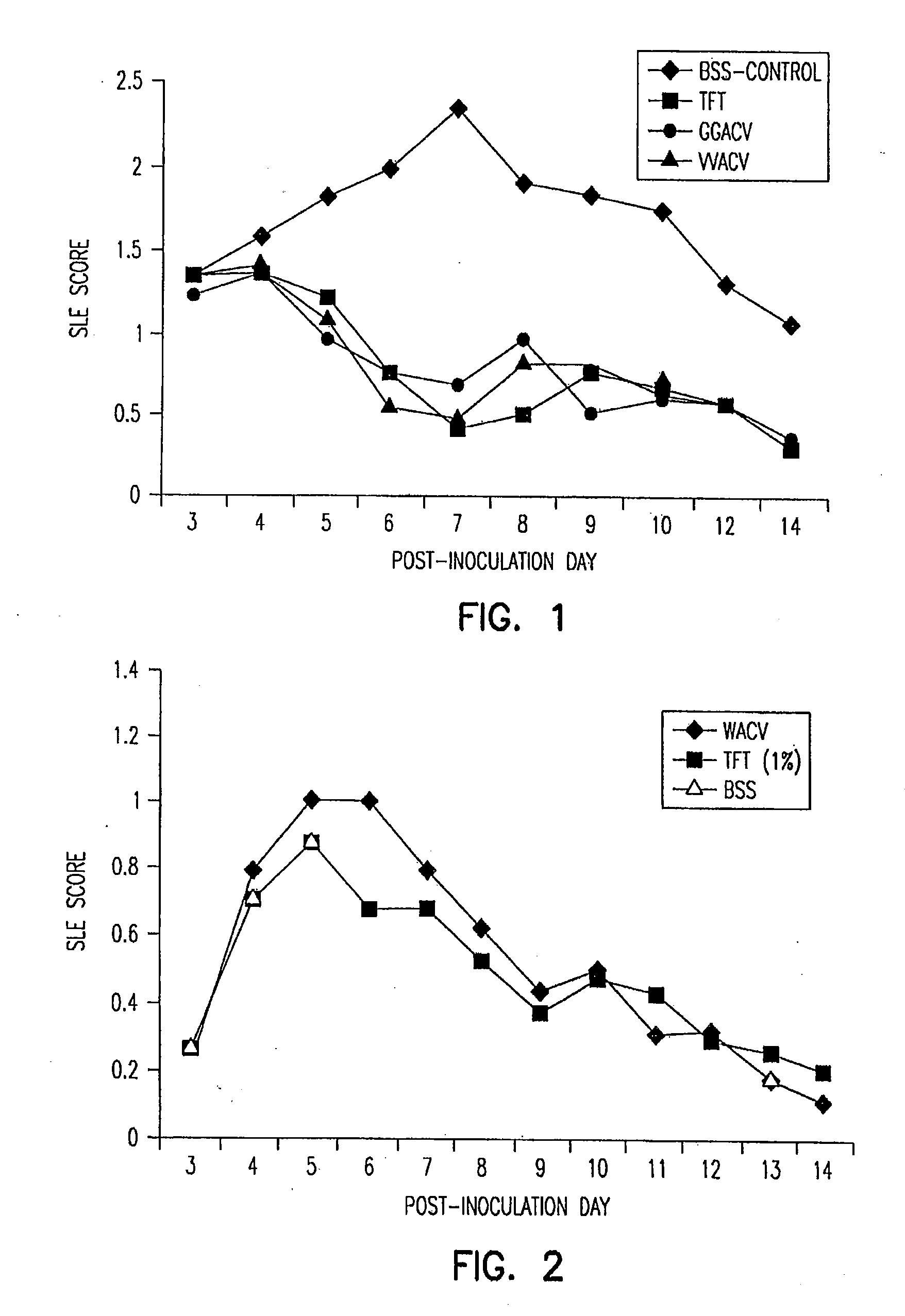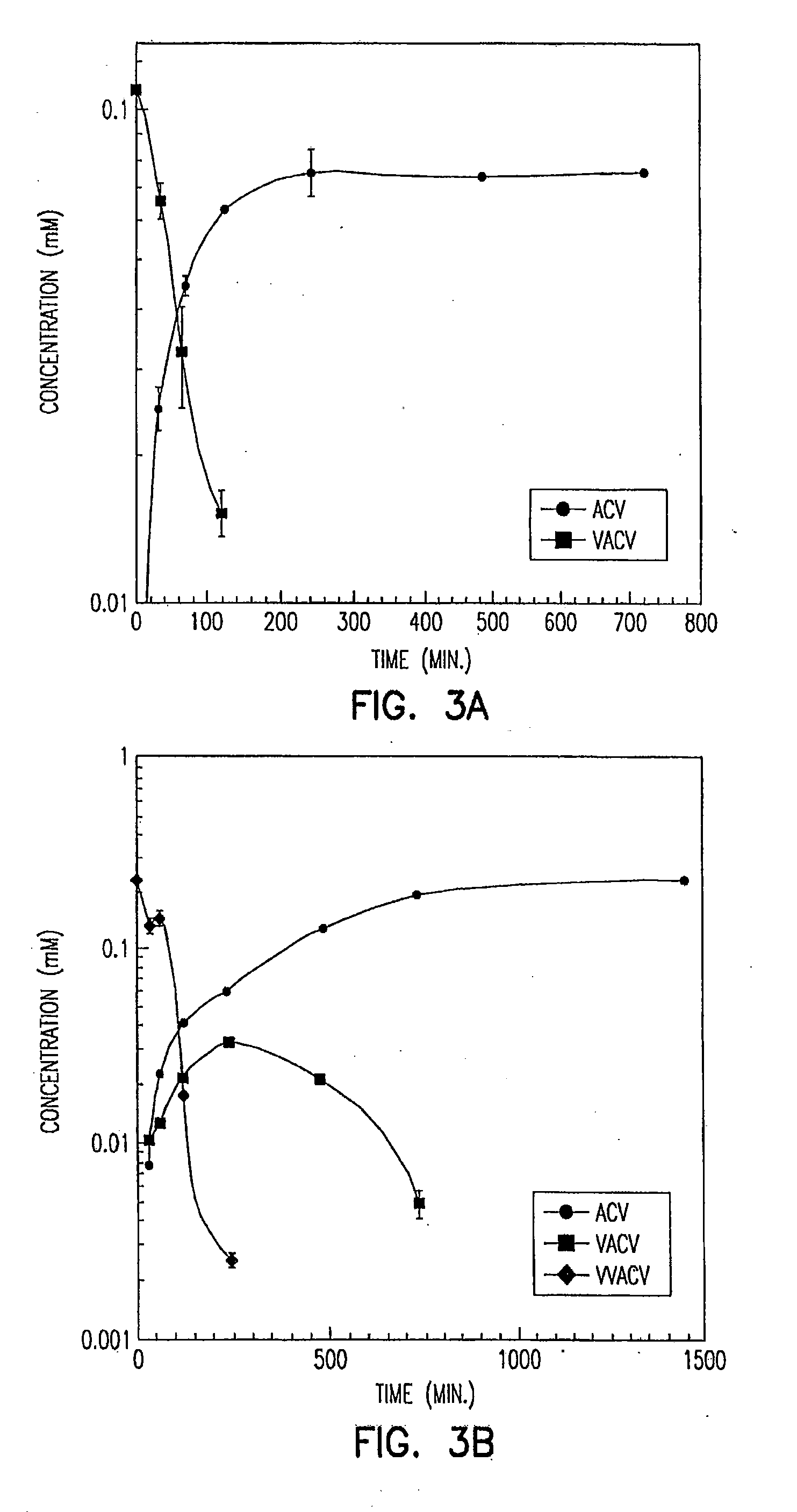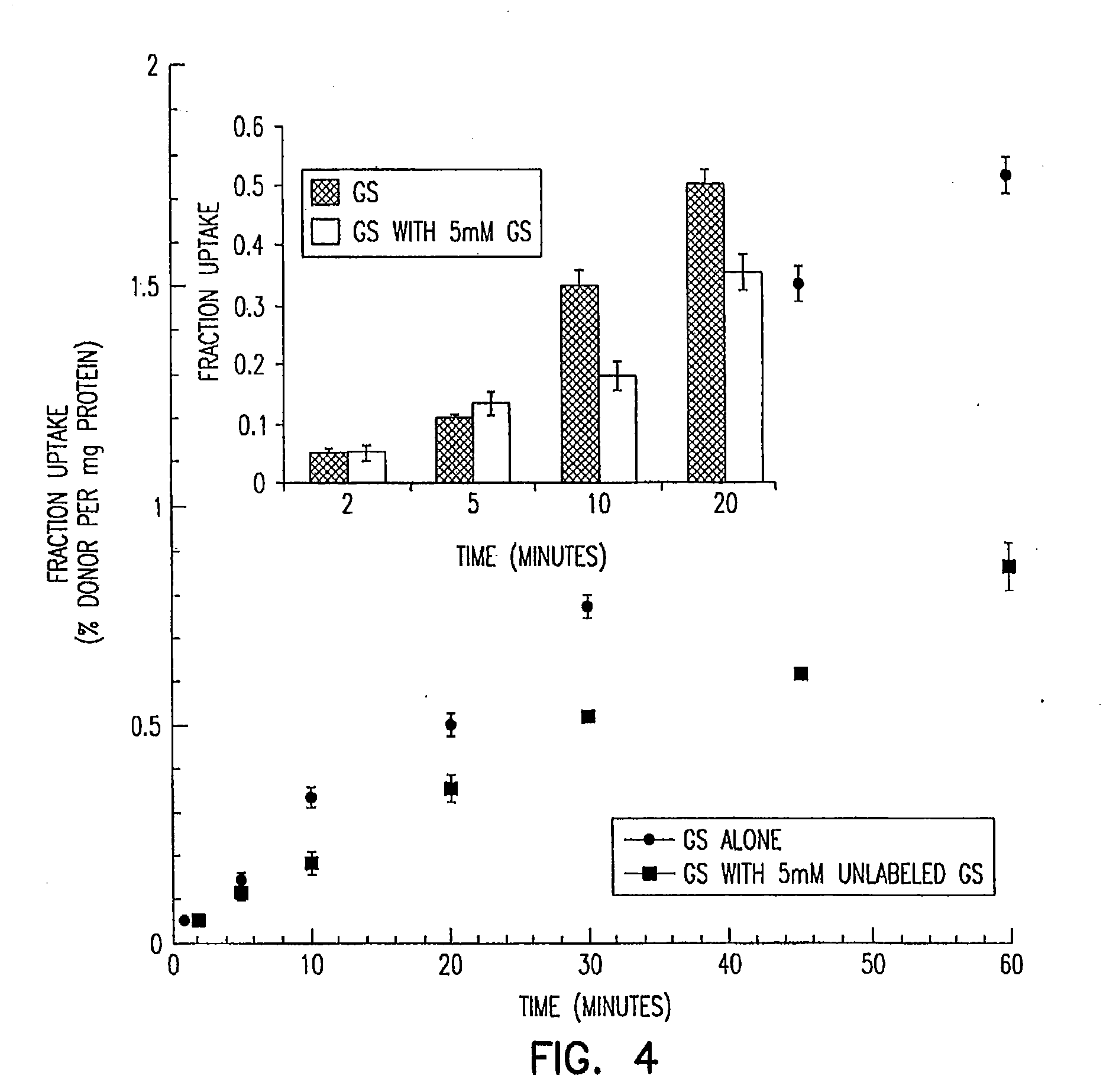Stereochemically defined dipeptide esters of antiviral agents for enhanced ocular treatment
a technology of dipeptide esters and antiviral agents, which is applied in the direction of peptide/protein ingredients, drug compositions, therapy, etc., can solve the problems of large disparity between the number of drugs developed for anterior segments, and the availability of pept expressed at bob is extremely limited, and the effect of enhancing enzymatic stability and pept uptake efficiency
- Summary
- Abstract
- Description
- Claims
- Application Information
AI Technical Summary
Benefits of technology
Problems solved by technology
Method used
Image
Examples
example 1
Preparation of Val-Val-Acv
[0100]The synthesis of compound 5 was carried out as summarized in Scheme 1:
i) Boc-VAL, DCC, DMF, 0° C., 1 hr, ii) DMAP, DMF, 18 hrs, rt iii) TFA, 0° C., 30 min, iv) Boc-Val, DCC, DMF, 0° C., 1 hr, v) TEA, rt, vi) adding Boc-Val amino acid anhydride (step iv) to the neutralized Val-ACV (step v), 5 hrs, rt, vii) TFA, 0° C., 30 min.
[0101]Synthesis of the Val-Val-ACV ester of acyclovir involves (i) formation of Boc-Val amino acid anhydrides, ii) coupling of the Boc-Val anhydride with ACV (1), iii) deprotecting the Boc-Val-ACV, iv) formation of Boc-Val anhydrides, v) neutralizing of Val-ACV, vi) coupling of the Boc-Val acid anhydride with the neutralized Val-ACV (formation of dipeptide), and vii) finally deprotection of the amino group of Boc-Val-Val-ACV.
[0102]Depending on the specific stereoisomeric form desired, the Boc-Val amino acid anhydride coupling reagents can be prepared from D-Val, or from L-Val, by substituting those reagents for racemic Val in prepa...
example 2
Preparation of Gly-Gly-ACV (3)
[0105]The commercial availability of carbobenzyloxy(CBZ)-Gly-Gly reduced the steps of the synthesis to only three, two of which are similar to the corresponding steps of Scheme 1. The difference in the third step lies in the cleavage of CBZ protecting group. For the deprotection, a solution of (2) in MeOH, tetrahydrofuran (THF), water was added to 0.5N aqueous HCl and 10% Pd / C. The mixture was shaken in a Parr apparatus under an initial pressure of 50 psi of hydrogen at ambient temperature for 60 hrs. The mixture was filtered, the catalyst was washed with MeOH, and the combined washings and filtrate were lyophilized. The residue was recrystallized following the method reported by Beauchamp et al., cited above.
i) CBZ-Gly-Gly, DCC, DMF, 0° C., 1 hr, ii) DMAP, DMF, 18 hrs, rt, iii) MeOH, THF, H2O, 0.5HCl, 10% Pd / C, 60 hrs.
[0106]A mixture of CBZ-Gly-Gly and dicyclohexyl carbodiimide (DCC) in dimethylformamide (DMF) in a ratio of 1:2 CBZ-Gly-Gly:DCC was stir...
example 3
Preparation of Other Amino Acid and Dipeptide Esters of Acyclovir
[0108]ACV was synthesized as reported in Izawa, K., et al., Pure Appl. Chem. 70:313 (1998); and Shiragama, K. et al., Nucleosides Nucleotides 14:337 (1995). The amino acid and peptide esters were formed as in Example 1, by i) formation of N-protected amino acid anhydrides, ii) coupling of the N-protected amino acid anhydride with ACV, iii) deprotecting the amino group of the amino acid ester of ACV, iv) formation of the second N-protected amino acid anhydride, v) coupling of the N-protected amino acid anhydride with the deprotected amino acid esters of ACV (formation of the dipeptide ester), and vii) finally deprotection of the amino group of the dipeptide ester of ACV. By this method, Gly-Val-ACV, Tyr-Val-ACV, Val-Tyr-ACV, Tyr-Gly-ACV, and Gly-Tyr-ACV were synthesized.
PUM
| Property | Measurement | Unit |
|---|---|---|
| pH | aaaaa | aaaaa |
| concentration | aaaaa | aaaaa |
| solubility | aaaaa | aaaaa |
Abstract
Description
Claims
Application Information
 Login to View More
Login to View More - R&D
- Intellectual Property
- Life Sciences
- Materials
- Tech Scout
- Unparalleled Data Quality
- Higher Quality Content
- 60% Fewer Hallucinations
Browse by: Latest US Patents, China's latest patents, Technical Efficacy Thesaurus, Application Domain, Technology Topic, Popular Technical Reports.
© 2025 PatSnap. All rights reserved.Legal|Privacy policy|Modern Slavery Act Transparency Statement|Sitemap|About US| Contact US: help@patsnap.com



